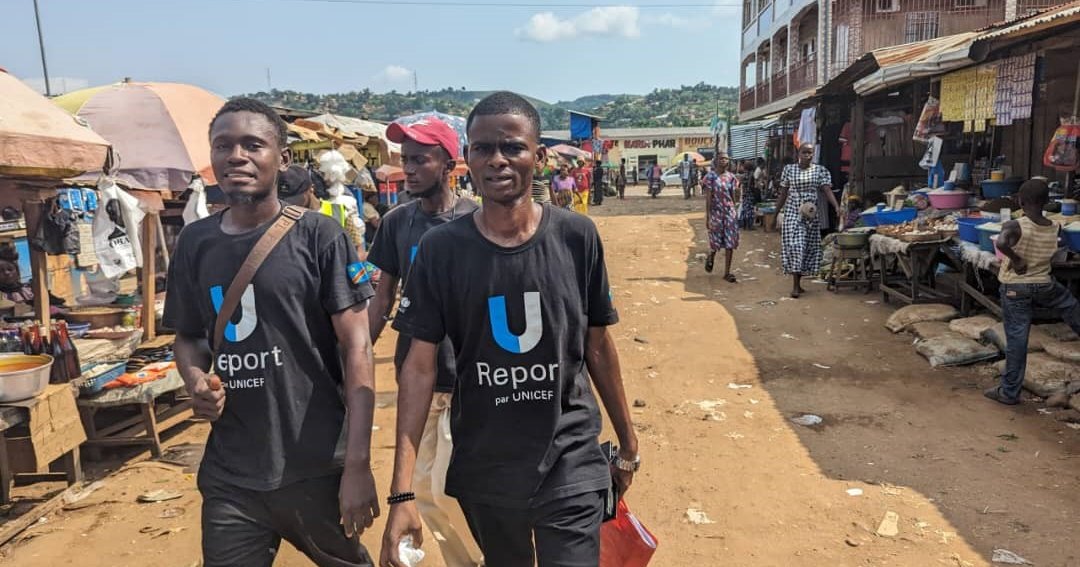Between November 2024 and February 2025, PATH and UNICEF provided the youths with training on malaria and immunization messaging, communication techniques, and rumor management. At the outset, they received communication materials—posters, job aids, audio spots and messaging guides—to support their outreach. Then, at the end of the challenge, all clubs were recognized with certificates of participation. The most successful groups received additional tools, such as smartphones and laptops, to encourage sustained engagement and support future initiatives.
Michael’s team in Kisantu, a health zone roughly 75 miles south Kinshasa, was one of the most successful youth groups.
“It wasn’t like the polio campaigns,” he recalls. “This was new, unfamiliar—and people were afraid.”
Instead of just facing parents in public, the youth groups decided to take a more personal approach. They knocked on doors. They sat with families, sharing stories and smiles. They answered questions one by one.
“Salvation is individual,” Michael said. “When someone opens their door and sees a familiar face from the neighborhood, they’re more likely to listen.”
In one case, a father adamantly refused to allow his granddaughter to be vaccinated, citing religious objections. But when he realized one of the youth volunteers was his neighbor’s daughter, he softened.
“If she’s involved,” he said, “then I trust it.”
Within days, the child was vaccinated.
